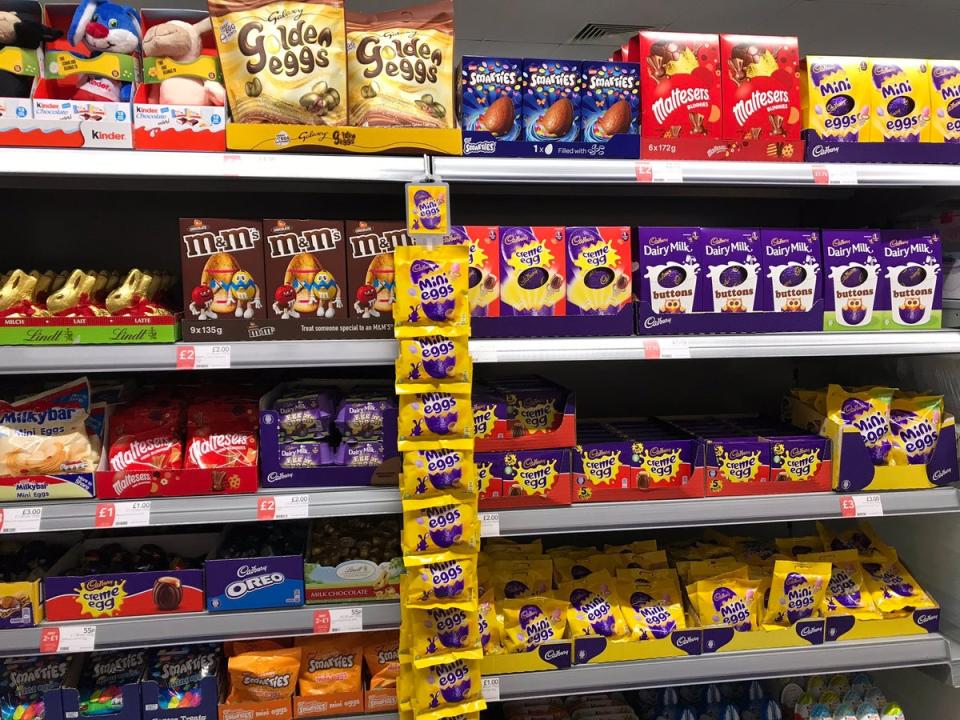Shop price inflation hits another record high as cost of sugar leaves a sour taste

Shop price inflation reached a record high this month, figures show – and there’s more misery for households in store as experts warn soaring food costs have yet to peak.
The increasing cost of sugar coupled with high manufacturing costs contributed to price rises for chocolate, sweets and fizzy drinks, while fruit and vegetable prices also rose as poor harvests in Europe and North Africa limited availability, retailers said.
Shop prices are now 8.9 per cent higher than they were a year ago, up from February’s 8.4 per cent increase, according to the British Retail Consortium (BRC)-NielsenIQ index.
Overall food inflation accelerated to 15 per cent, up from 14.5 per cent last month, while the price of fresh food is now 17 per cent higher than last March – the highest on record.
Inflation on items other than food also reached a new record of 5.9 per cent, up from 5.3 per cent in February.
Helen Dickinson, chief executive of the BRC, said: “Shop price inflation has yet to peak. As Easter approaches, the rising cost of sugar coupled with high manufacturing costs left some customers with a sour taste, as price rises for chocolate, sweets and fizzy drinks increased in March.
“Fruit and vegetable prices also rose as poor harvests in Europe and North Africa worsened availability, and imports became more expensive due to the weakening pound. Some sweeter deals were available in non-food, as retailers offered discounts on home entertainment goods and electrical appliances.”
Mike Watkins, head of retail and business insight at NielsenIQ, said: “Inflation continues to have an impact on the spending power of shoppers and increased energy bills from April will add more pressure.
“Since food prices have risen retailers have seen more visits but less basket spend, as shoppers manage their weekly food bills by shopping little and more often and seeking out the lowest prices.
“And as Easter approaches some high street retailers will also be offering discounts and promotions to encourage customers to spend.”
It comes after the Office for National Statistics last week revealed UK inflation shot up unexpectedly from 10.1 per cent in January to 10.4 per cent in February as the vegetable shortages pushed food prices to their highest rate in more than 45 years.
Britain’s biggest union, Unite, has blamed food firms and retailers for passing on price increases to shoppers despite sustained profits.
Meanwhile, a report from Coeliac UK shows the cost of living crisis is even higher for those following a gluten-free diet, including those with coeliac disease.
A weekly gluten-free food shop can be as much as 20 per cent more expensive than a standard weekly food shop. The cheapest gluten-free loaf of bread costs 7.2 times more than the cheapest loaf containing gluten.

 Yahoo Sport
Yahoo Sport 





































